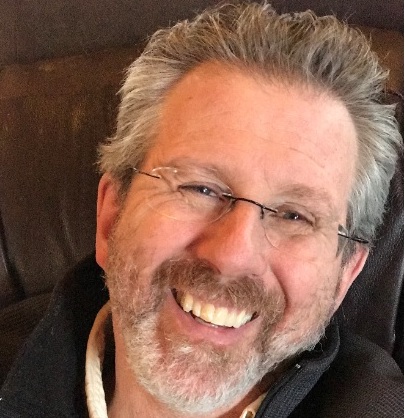Mike Sellers began his career in public education in 1998 after falling in love with the profession during stints working as a wetland biologist with school-age children. “I quit my job, went back to school, and earned a teaching certificate,” he says.
Sellers taught seven years in Noorvik, a small Inupiaq village in Northwest Arctic Alaska, and served two years as a regional principal in the Kenai Peninsula Borough School District. He is now principal of Nikolaevsk (Alaska) School. He was at the helm in 2015, when the K-12 Title I school of roughly 64 students was named a National ESEA Distinguished School for closing the achievement gap between student groups for two or more consecutive years.
The following interview has been edited for length and clarity:
Q: What is your education philosophy?
A: Maslow must always come before Blooms. Students, no matter the age, are still human beings. If Johnny hasn’t eaten or slept prior to coming to school, these needs must be met before we can expect him to be ready for his academic lessons.
If we want education to be synonymous with learning—it often is not—then it must be personalized to make it important to the student.”
Discipline is something that is taught to a child. It is not something that is done to them. It is always important to remember that learning is not something that only happens within the walls of a school building.
Q: How do you manage resources with such a small student body?
A: Because our staff and students think of ourselves as a family, we often wonder, “How do big schools manage resources with such a large student body?” [Positive behavioral interventions and supports], personalized learning, incorporation of SEL throughout the day, as well as academic rigor provide a strong foundation to our family.
[Regarding the untimely death of a few teachers,] these tragic events have served to pull us tighter together, sharing responsibilities and jumping in to help each other without hesitation.
Q: Are tools like personalized education plans effective at promoting autonomy among students and giving them ownership of their academic achievement? If so, how?
A: Anything that can be done to promote authentic autonomy among students promotes ownership. The key is it must be authentic and meaningful to the child. We have empowered our students to take a role in developing rubrics for what personalized education and ownership should look like in a classroom.
Our school district promotes ‘learning walks’ throughout the district where teams of teachers and administrators visit other district schools. These visiting staff are led by staff at the host school and observe and discuss what they are seeing in the classrooms. The difference at Nikolaevsk is these visits are completely student-led.
As one visiting administrator stated last year, “These students own this. This is their school.”
Q: The school has focused on professional development in PBIS. What strategies has the school gleaned and implemented from this framework?
A: “The main thing we have learned is to focus on recognizing the desired behaviors. Simple, ‘great job,’ ‘oh, I love how you did that,’ etc. are most important. These positive affirmations must be in a 4-to-1 ratio, positive-to-negative. Trinkets, pompoms, etc. are not nearly as important as just a nice ‘good job.’
Each teacher is assigned a specific color of “warrior way” tickets to give to students when they give their positive supports. The purpose of the tickets, which are turned in to a central location, is primarily to remind the teachers to give positive affirmations. Teachers want to see their tickets in those jars. When the ticket jar is filled, schools host a schoolwide celebration of the students’ choosing.
It is also important to note the 4-to-1 ratio is for every child, not just a ‘class average.’ Every student matters. Usually, the kids who are the hardest to love are the ones who need love the most.
Q: Are there any unique ways you have managed operations during COVID-19? Generally, what is your benchmark for success long-term?
A: We have had to develop several mitigation plans for classrooms, hallways, entering and exiting the building, masks, cohorts, etc. The school community we have developed at the school over the years has made the incorporation of the ‘new normal’ into our daily schedule much easier than it would have otherwise been. Students understand the ‘why’ and want to protect their school family. I think our ‘benchmark’ for success is how the students have just jumped in with a ‘we’ve got this’ attitude.
Johnny Jackson covers homeless and at-risk students and other Title I issues for TitleIAdmin, a DA sister publication.







